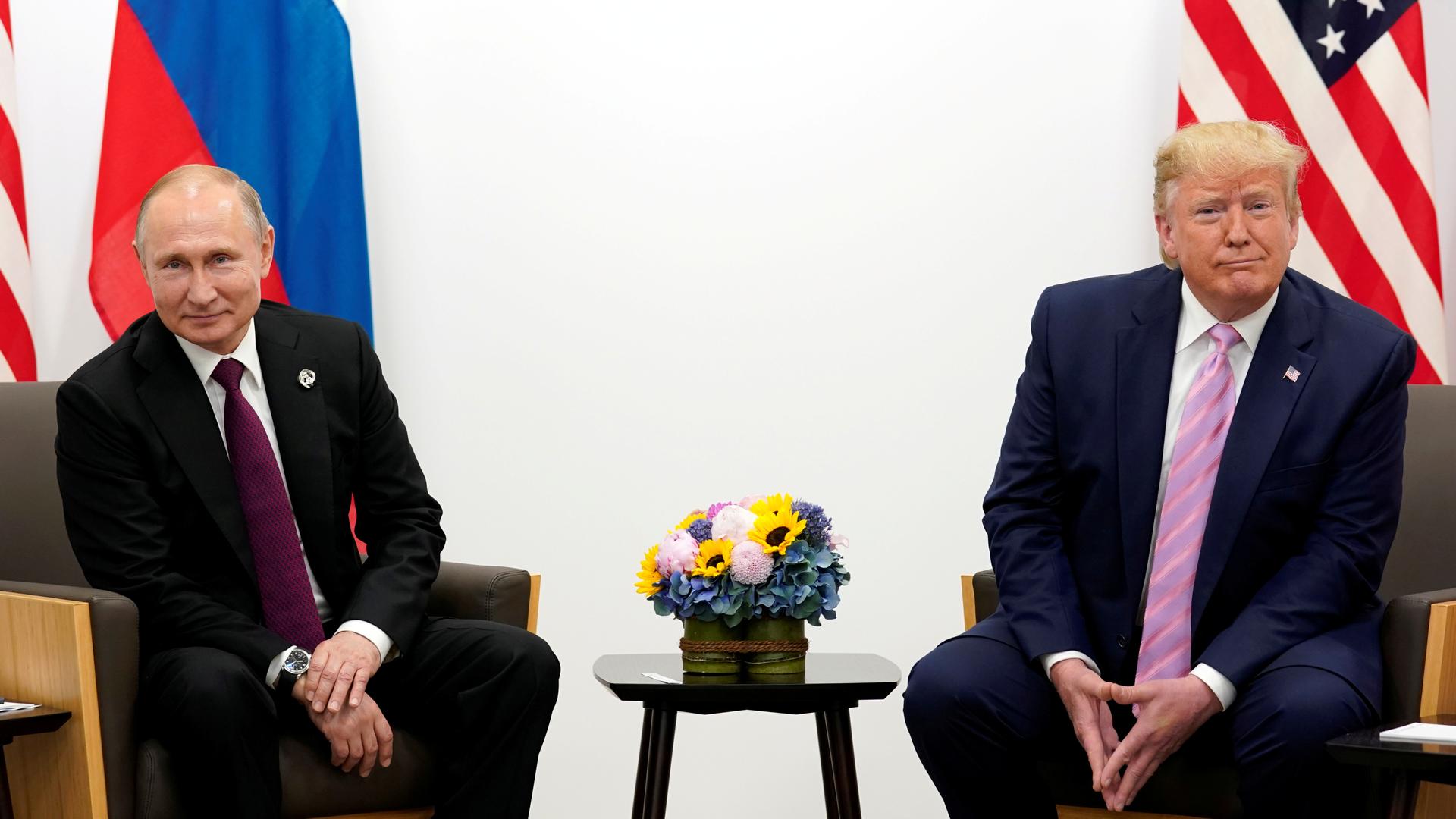Russia launched an aggressive effort to interfere in the 2016 presidential election on behalf of Donald Trump, and associates of the Republican candidate who were in regular touch with Russians throughout the campaign were eager to benefit from the help, a Senate panel has concluded in the fifth and final report in its investigation.
Though the report from the Senate intelligence committee does not reach a conclusion about whether the Trump campaign and Russia criminally conspired to sway the election, it nonetheless describes the eagerness of Trump associates to exploit the Kremlin’s aid, particularly Democratic emails that were hacked by Russian military intelligence officers and disclosed by the anti-secrecy website WikiLeaks in the run-up to the election.
The committee added that it “did not find evidence of collusion between President Trump and the Russians.
“As is evident to those who read all five volumes of the Committee’s report, the Russian government inappropriately meddled in our 2016 general election in many ways but then-Candidate Trump was not complicit.”
The report found President Vladimir Putin personally directed the Russian efforts to hack computer networks and accounts affiliated with the Democratic Party and leak information damaging to Clinton.
“Moscow’s intent was to harm the Clinton Campaign, tarnish an expected Clinton presidential administration, help the Trump Campaign after Trump became the presumptive Republican nominee, and undermine the US democratic process.”
Hack-and-leak
WikiLeaks played a key role in Russia’s effort to assist Republican Trump against Democrat Hillary Clinton and likely knew it was helping Russian intelligence, said the report, which is likely to be the most definitive public account of the 2016 election controversy.
“WikiLeaks actively sought, and played, a key role in the Russian campaign and very likely knew it was assisting a Russian intelligence influence effort, the report said, saying the panel found “significant indications that Julian Assange and WikiLeaks have benefited from Russian government support.”
As Russian military intelligence and WikiLeaks released the hacked documents, the report said Trump’s campaign sought advance notice, devised messaging strategies to amplify them “and encouraged further theft of information and … leaks”.
“The Trump campaign publicly undermined the attribution of the hack-and-leak campaign to Russia and was indifferent to whether it and WikiLeaks were furthering a Russian election interference effort,” the report added.
The committee could not establish the extent to which Trump campaign advisor Roger Stone had real inside access to WikiLeaks materials, the report said.
READ MORE: Trump commutes jail sentence of ally Roger Stone
Manafort’s ‘grave’ threat
The panel, formally called the Senate Select Committee on Intelligence, also alleged Manafort collaborated with Russians, including oligarch Oleg Deripaska and an alleged Russian intelligence operative, Konstantin Kilimnik, before during and after the election.
The panel found Manafort’s role and proximity to Trump created opportunities for Russian intelligence, saying his “high-level access and willingness to share information with individuals closely affiliated with the Russian intelligence services … represented a grave counterintelligence threat.”
“On numerous occasions, Manafort sought to secretly share internal campaign information with Kilimnik”, including polling and strategy details, the report said.
The report notes how Manafort shared internal Trump campaign polling data with Kilimnik and says there is “some evidence” that Kilimnik may have been connected to the Kremlin’s operation to hack and leak Democratic emails, though it does not describe that evidence. In addition, the report says that “two pieces of information” raise the possibility of Manafort’s potential connection to those operations, but what follows next in the document is blacked out.
No final conclusion
A Manafort lawyer, Kevin Downing, said on Tuesday that there is information that was sealed at the request of Mueller’s team “that completely refutes whatever the intelligence committee is trying to surmise”. He added: “It just looks like complete conjecture.”
The Senate panel described its report, totalling more than 1,300 pages, as “the most comprehensive description to date of Russia’s activities and the threat they posed”. The bipartisan investigation lasted almost three and a half years, much longer than the other probes.
The report purposely does not come to a final conclusion, as the other reports did, about whether there is enough evidence that Trump’s campaign coordinated or colluded with Russia to sway the election to him and away from Democrat Hillary Clinton, leaving its findings open to partisan interpretation.
A group of Republicans on the panel submitted “additional views” to the report saying that it should state more explicitly that Trump’s campaign did not coordinate with Russia. But Democrats on the panel submitted their own views, arguing that the report clearly shows such cooperation.
Difference between Mueller’s report
Former special counsel Robert Mueller concluded in a report issued last year that Russia interfered in the election through hacking and a covert social media campaign and that the Trump campaign embraced the help and expected to benefit from it. But Mueller did not charge any Trump associates with conspiring with Russians.
READ MORE: Robert Mueller had authority to prosecute Paul Manafort: judge
The Senate investigation also delved into areas of great interest to Trump that were not explored by Mueller. Those include the FBI’s reliance on a dossier of opposition research compiled by a former British spy whose work was financed by Democrats.
Senator Marco Rubio of Florida, the committee’s acting chairman, said in a statement that the committee was troubled that the FBI had been willing to use the dossier “without verifying its methodology or sourcing” as it applied for secret surveillance warrants against a former Trump campaign adviser.
Both Manafort and Kilimnik were charged in special counsel Robert Mueller’s Russia investigation, but neither was accused of any tie to the hacking.










Discussion about this post